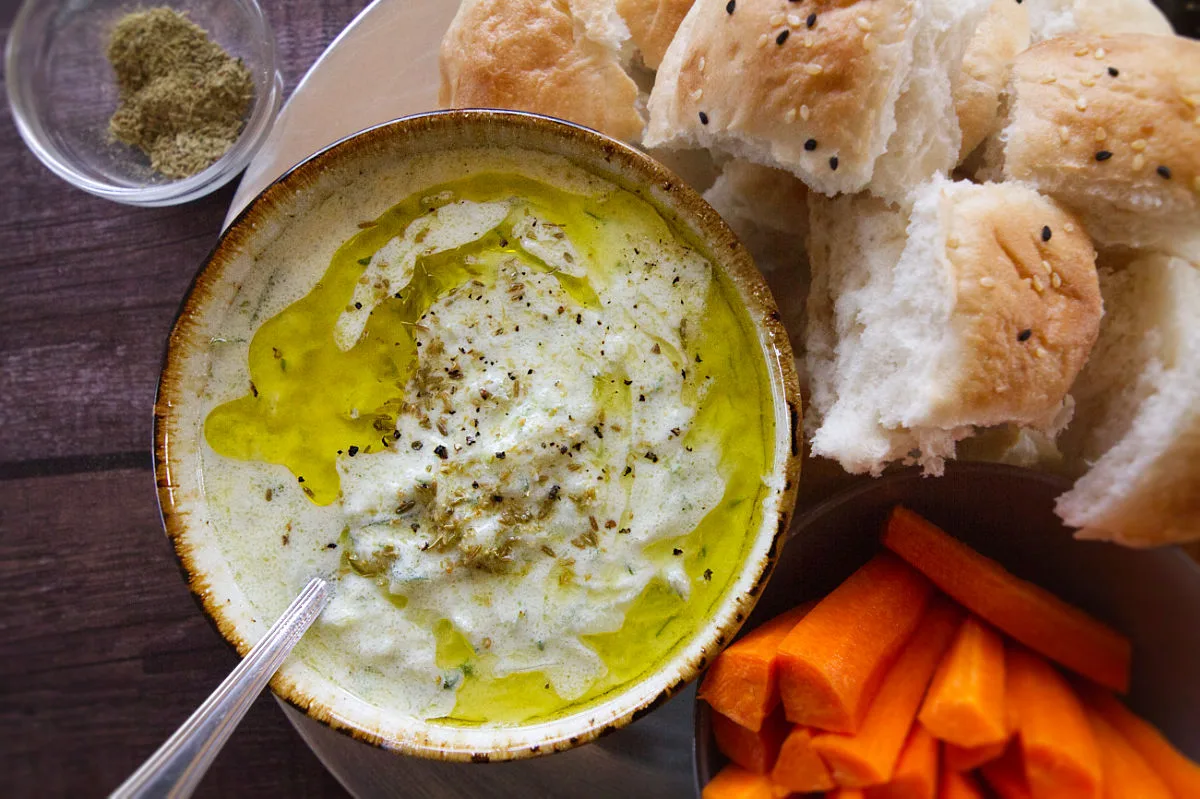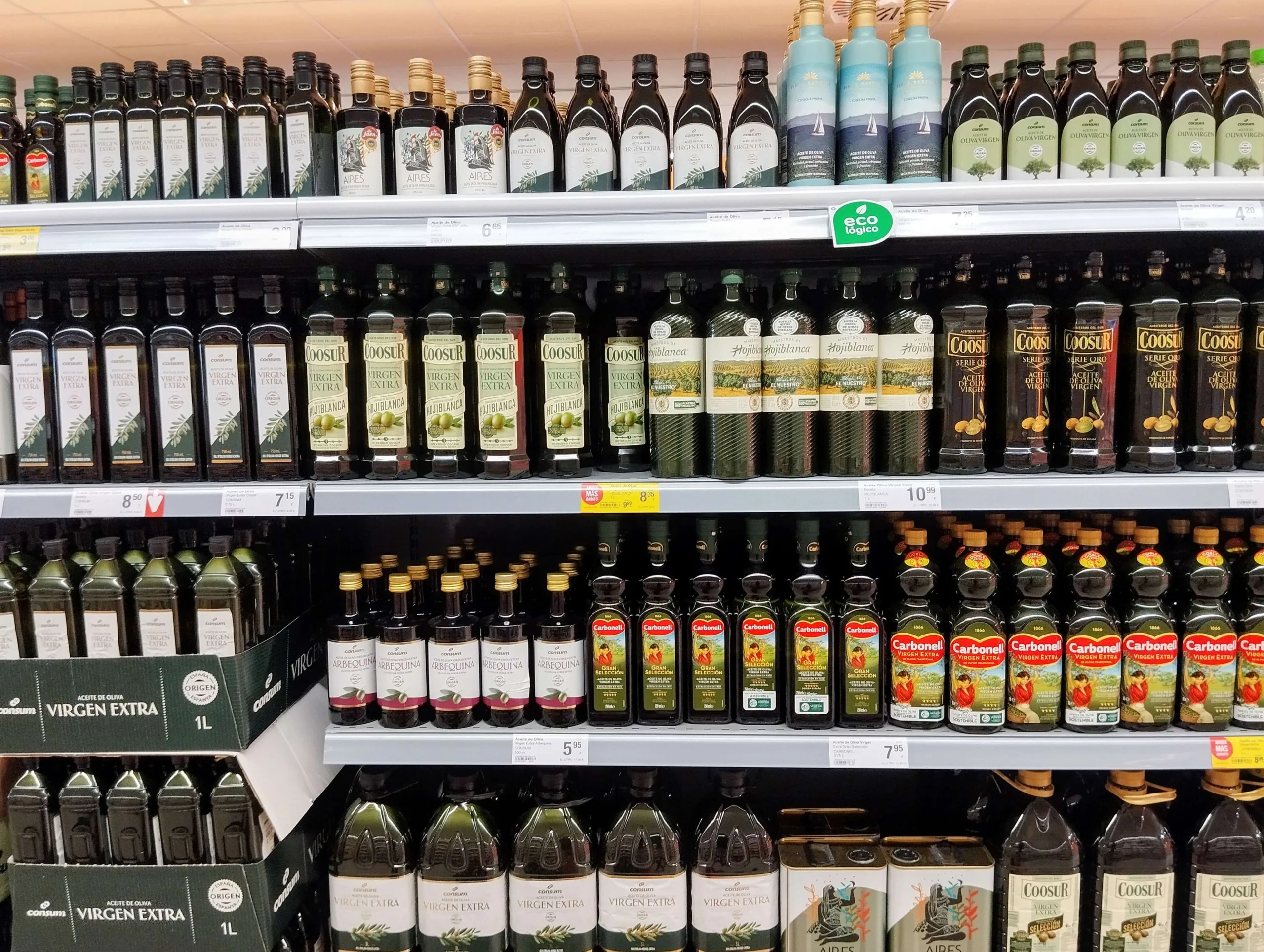Olive oil, often referred to as “liquid gold”, is that golden elixir that takes your salads to the next level and adds that extra “oomph” to your pasta. We’ve all heard about its magic, but have you ever stopped to ponder: where does this liquid gold come from? What makes one type different from another? And of course, is olive oil good for you?
Hold onto your chef’s hat, as we’re about to sail through the Mediterranean, exploring different varieties of olive oils and the countries that produce them. We will also explore the many health benefits that good quality olive oil provides.
Table of Contents:
The Different Types of Olive Oils
Extra Virgin Olive Oil (EVOO)
Taste: Rich and robust with a spicy kick.
Color: Golden with a hint of green.
Best for: Drizzling on salads, dipping breads, and finishing dishes. It’s not just for show but there are many different flavored EVOOs.
Virgin Olive Oil
Taste: A tad milder than its extra virgin cousin.
Color: Lighter gold.
Best for: Cooking and sautéing. When EVOO feels too posh, this one’s got your back.
Refined Olive Oil
Taste: Muted.
Color: Pale yellow.
Best for: High-heat cooking. It doesn’t have the pronounced flavor of EVOO or virgin olive oil, so it’s a subtle sidekick in the kitchen.
Olive Pomace Oil
Taste: Very mild.
Color: Very light yellow.
Best for: Deep frying and recipes that need a neutral oil.
The Mediterranean Countries That Are Olive Oil Superstars
Spain
Spain is the world’s largest producer. From the sun-kissed orchards of Andalusia, Spanish olive oils, especially EVOO, are oh-so-tasty. Ever heard of the famed Arbequina and Picual varieties? You’ve got Spain to thank for that.
Italy
From Tuscany to Sicily, Italy offers a rich tapestry of flavors and aromas. Italian olive oils have an undeniable charm, from peppery to buttery. Remember, when you drizzle it on your pizza, you’re tasting centuries of tradition.
Greece
Did you know that historically Greece has the highest olive oil consumption per capita in the world? Greeks love their oil, and why wouldn’t they? With a rich, fruity taste, Greek olive oils, like the Koroneiki variety, are a staple in many Mediterranean dishes.
Turkey
Often flying under the radar, Turkey is a rising star in the olive oil universe. From the Aegean to the Mediterranean coasts, Turkish olive oils bring a unique blend of flavors, melding the East and West.

A bowl of homemade Greek tzatziki with olive oil drizzled over the top.
Health Benefits No Matter Where it Comes From
Olive oil, often called “liquid gold”, has been lauded for centuries for its health benefits. Here are some of the top health benefits it brings:
- Cardiovascular health: Diets abundant in olive oil, synonymous with Mediterranean eating patterns, are known to safeguard against heart disease risk factors, such as atherosclerosis – the thickening or hardening of the arteries. Olive oil contains phenolic antioxidants that diminish inflammatory molecules preventing atherosclerosis.
- Reduces inflammation: One of the primary benefits of olive oil is its rich content of mono-unsaturated fatty acids like oleic acid, which plays a pivotal role in reducing inflammation.
- Antioxidant and antibacterial properties: Olive oil is a powerhouse of antioxidants and possesses antibacterial properties. Notably, it contains vitamins E and K, which actively combat chronic diseases and can inhibit and eradicate various bacteria.
- Manages cholesterol levels: Virgin olive oil contains a type of fatty acid that assists in decreasing “bad” LDL cholesterol and elevates the levels of the “good” HDL cholesterol.
- Regulates blood sugar: The Mediterranean diet, with olive oil as its linchpin, has been shown to be ideal for those with diabetes. It aids in regulating cholesterol, triglycerides, and blood sugar levels.
- Powerful antioxidant: Olive oil is renowned for its antioxidative properties. This means it protects the body against the detrimental impacts of free radicals, which contribute to aging and various health problems.
- Boosts circulation: Virgin olive oil has been found to regulate and enhance the circulation of blood, potentially preventing the formation of varicose veins and discomfort during walking.
- Skin hydration and revitalization: Beyond its internal health benefits, olive oil plays a significant role in skin care. It deeply moisturizes the skin, making it soft and revitalized. And quality is not just related to its consumption but also its topical application.
A recent study in the US showed that those who consumed more than half a tablespoon of olive oil per day had decreased rates of premature death from cardiovascular diseases, Alzheimer’s, and other causes compared to those who infrequently or never consumed it.
Olive Oil FAQs
Can I fry with EVOO?
You can fry with EVOO but you can also use refined olive oil for high-heat tasks, especially if you need large quantities. Extra virgin olive oil is the most expensive so you may want to just let EVOO shine in cold dishes.
Does olive oil expire?
Indeed, it does. Keep it away from direct sunlight and use it within 12-14 months for the best flavor and health benefits. Never keep it near your stove or oven either, or any heat source. Often, the best place for olive oil is outside of the kitchen or in a dark, cool pantry away from heat.
Are all olive oils from the Mediterranean good?
While the Mediterranean boasts some of the finest oils, it’s essential to check for authenticity. Look out for origin certifications and seals. And as with any oil-producing country, extra virgin olive oil is the golden standard.
Olive oil, in its various forms, particularly extra virgin olive oil, is a dietary staple that promises a myriad of health benefits. No longer just a staple of the Mediterranean diet, it holds immense global value now. Incorporating olive oil into daily diets can pave the way for a healthier and more nourishing lifestyle. Happy drizzling!


Leave a Reply